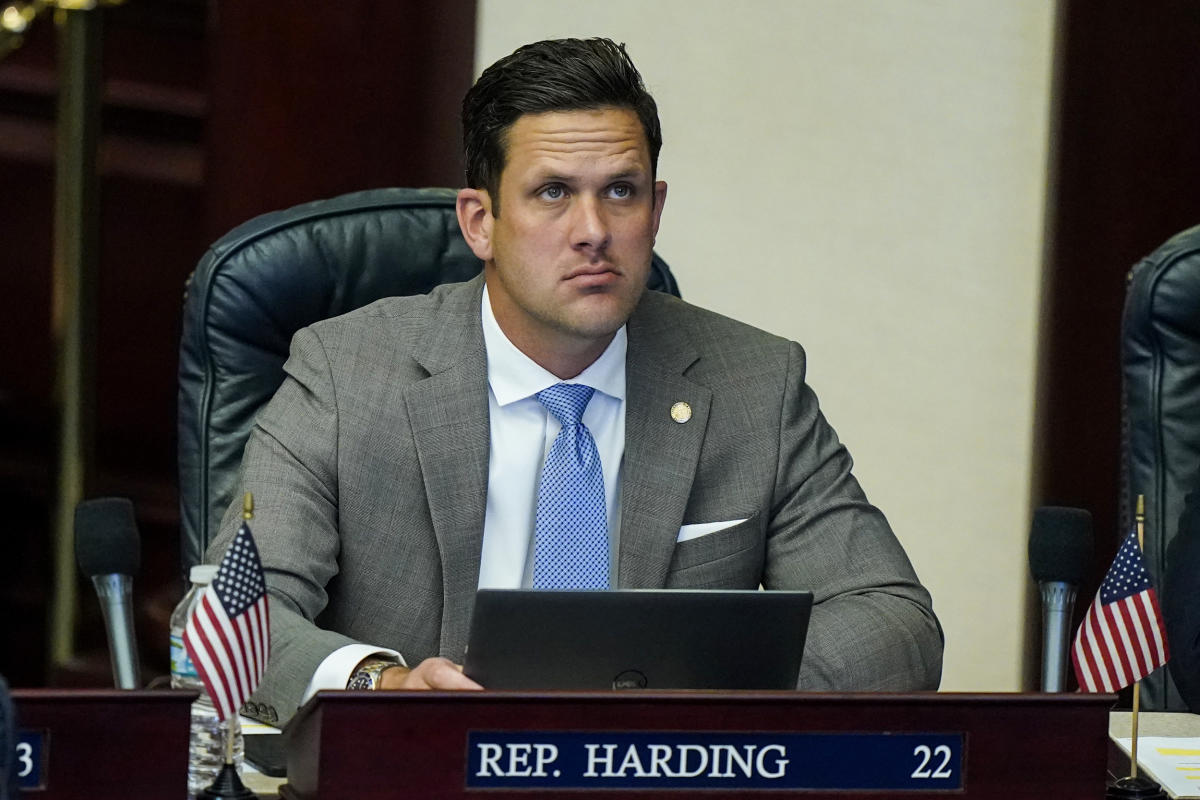The Florida legislator who sponsored legislation critics dubbed the “Don’t Say Gay” bill was accused of illegally obtaining tens of thousands of dollars in Covid-relief funds, authorities said Wednesday.
Joseph Harding, 35, was indicted on six counts of wire fraud, money laundering, making false statements and other crimes, the U.S. attorney’s office for Northern Florida said in a release.
Harding, a Republican whose district is south of Gainesville, is accused of seeking Covid-relief loans from the Small Business Administration in 2020 for two companies, Vak Shack Inc. and Harding Farms, according to the indictment.
The indictment alleges that in applications to the agency, Harding said the companies had half a dozen employees and gross revenues from the previous year totaling more than $800,000.
The companies had no employees, and state records showed they had been dormant in the months before the applications were filed, the indictment says.
Harding sought more than $150,000 in loans and received roughly $45,000 in January and February 2021, according to the indictment.
Harding pleaded not guilty to the charges in court Wednesday, court records show. Neither he nor his lawyer immediately responded to requests for comment.
Harding, a home health care executive first elected in 2020, is known for having introduced a bill that prohibited classroom discussion of sexual orientation or gender identity in the state’s primary schools.
The bill, which Harding said was aimed at “empowering parents” and creating boundaries to determine “what is appropriate in our schools,” was signed by Gov. Ron DeSantis in March and went into effect over the summer.
Critics blasted the bill, describing it as an attack on the state’s LGBTQ community and saying it could open districts up to lawsuits from parents upset about any LGBTQ-related conversation.
“This bill goes way beyond the text on its page,” former Rep. Carlos Guillermo Smith, a Democrat who is gay, said in February. “It sends a terrible message to our youth that there is something so wrong, so inappropriate, so dangerous about this topic that we have to censor it from classroom instruction.”
Harding’s trial is scheduled to begin Jan. 11. He could face 20 years in prison for the fraud charges, 10 years for money laundering and five years for making false statement, the release says.
This article was originally published on NBCNews.com

